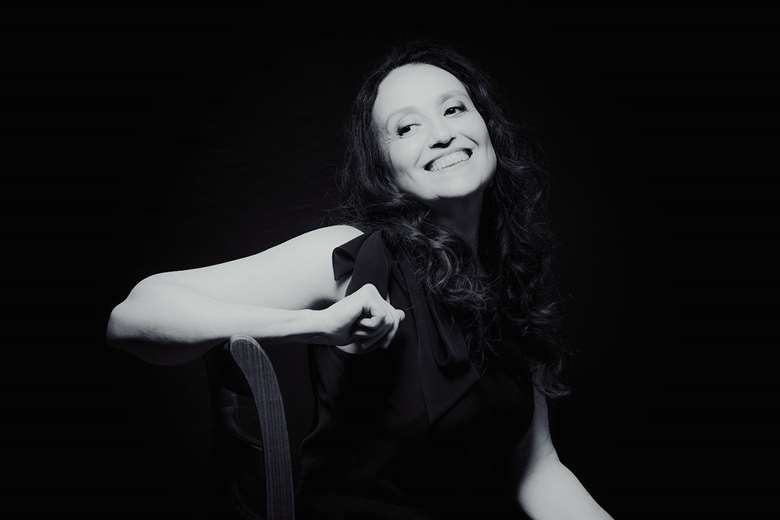Sonia Rubinsky: a career crossing continents
SponsoredMonday, October 7, 2024
As she prepares to release a rare ‘recital’ album, pianist Sonia Rubinsky reflects on lessons learned across the globe

As we seem to be living in a time in thrall to youth and novelty, it is good to be reminded that nothing can really replace the wisdom of experience. In the case of pianist Sonia Rubinsky’s career, experience is certainly the word. The details of her biography traverse the great seams of the classical music tradition from central Europe to New York via Brazil and Israel. As an elder-stateswoman of the instrument, her career as a performing and recording pianist has endured long enough to encompass masterclasses with Arthur Rubinstein and the blossoming of the streaming age. Her distinctive legacy on disc proves not just the depth of her artistry but the breadth of her outlook.
For aficionados of the byways of the piano repertoire, Rubinsky will perhaps be best known for laying down the complete piano works of her compatriot Heitor Villa-Lobos on Naxos. She was born in Campinas, in the state of São Paulo, to a Polish mother and Lithuanian father. Her intense contact with the great Brazilian teacher Olga Normanha gave her a direct link to both the milieu of Villa-Lobos and the southern European tradition established in Brazil by the Italian émigré Alferio Mignone.
When she moved to Israel at the age of 13, one distinctive pedagogical tradition was complemented by another – that of Haim Alexander and Irma Wolpe. And then another, when Rubinsky enrolled at the Juilliard School to study with Jacob Lateiner and Beveridge Webster, a period that also brought her into contact with Leon Fleisher and Gina Bachauer. In addition to style and technique, these experiences shaped Rubinsky’s broad repertoire outlook. ‘We pianists are lucky to have a very large repertoire to choose from,’ she says, ‘and at different times in my life I have been attracted to different aspects of the repertoire – I do go through phases.’
‘Despite being formed by so many diverse and significant influences, Rubinsky has only ever been her own person’
Those phases have taken in the First Viennese School through Beethoven to the Romantics and the modernists; but also backwards to Scarlatti and Bach (she has recorded three discs of Bach’s keyboard works), music whose Baroque rubric and rigorous finger technique informed her very distinctive, perhaps more ‘international’ take on the music of Villa-Lobos. ‘In a way, I redefined the contours of his music,’ she says of the latter composer, particularly with regard to the ‘rigorous rhythmic treatment of those passages which use juxtaposition of materials and polyrhythms.’ A memorable highlight in her discography are the three piano concertos of Almeida Prado, the first of which she describes as ‘a phenomenal piece’; the composer combines the spirit of Bartók, the lessons of his teacher Messiaen and the rhythmic spirit of Brazilian street music in his works.
For her latest release, ‘Goldfingers’, Rubinsky takes the deserved opportunity to throw the focus onto herself – to a point, at least. ‘Goldfingers’ is a true piano recital, ‘in the tradition of the Golden Age of the piano,’ in the pianist’s words, that will demonstrate the range of colours, styles, feelings and techniques that traverse myriad repertoire but in works that complement and resonate with one another. It starts with the ‘lovely and unusual’ Sonata No 4, K282 by Mozart, a composer ‘with whose music I consider myself as having a special relationship,’ followed by Rachmaninov’s Piano Sonata No 2 – this Rubinsky plays in the original version that she feels better positions Rachmaninov as ‘actually a very modern composer.’
Next comes Debussy’s Children’s Corner, a work that represents, for Rubinsky, ‘the magic of the piano sound … images of beauty and innocence’. No tribute to the Golden Age of pianism would be complete without transcriptions, which remind us, says Rubinsky, of the era ‘when pianists were still educated as composers’. On ‘Goldfingers’, she plays Fritz Kreisler’s transcription of Rachmaninov’s Liebeslied and the 1968 version of Horowitz’s Variations on a Theme from Bizet’s Carmen.
Rubinsky, ever lucid and insightful, has a strong philosophy of performance that not only underpins all she does but, one suspects, lies behind the truthfulness and distinction of her interpretations. ‘We are called upon to learn a piece of music,’ she says, ‘to teach our body, and reach our mind, ears, intellect and emotions.’ It is the person, she believes, who makes the sound: their imagination, culture and the savoir faire of the body.
In which regard, Rubinsky points to the challenge of a small-handed pianist like her playing Rachmaninov. ‘I have always wanted to play him, even though my teachers did not steer me towards his music,’ she says. ‘But having played a lot of Chopin, Schumann and Bach gave me an intuitive understanding to the contrapuntal writing of Rachmaninov. The fact of having small hands forced me to use resonance and voicing in order to realise the fullness of the piano writing.’
Ever pragmatic and resourceful she may be, but Rubinsky’s career has proven that despite being formed by so many diverse and significant influences, she has only ever been her own person – and her own musician. Perhaps ‘Goldfingers’ is a celebration of that, more than anything else.







